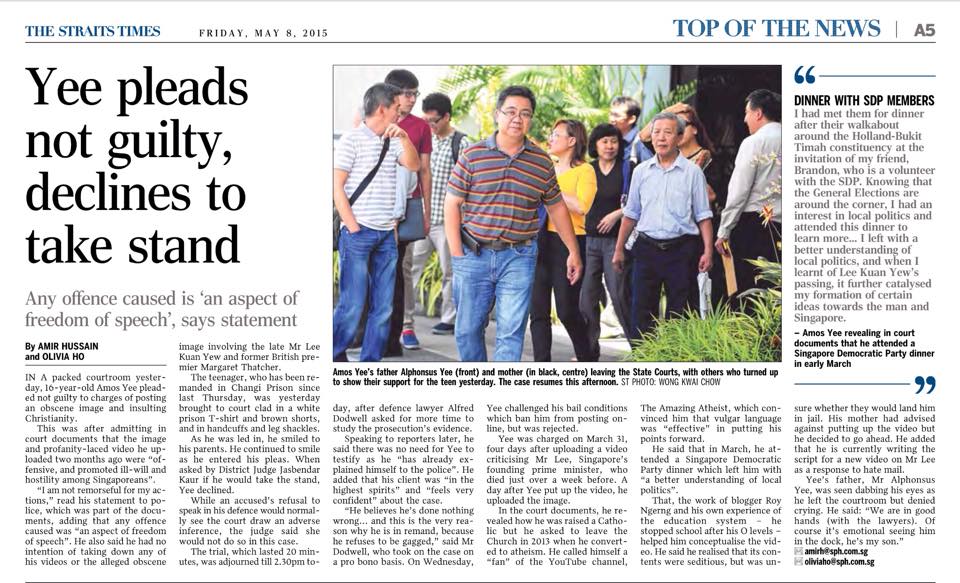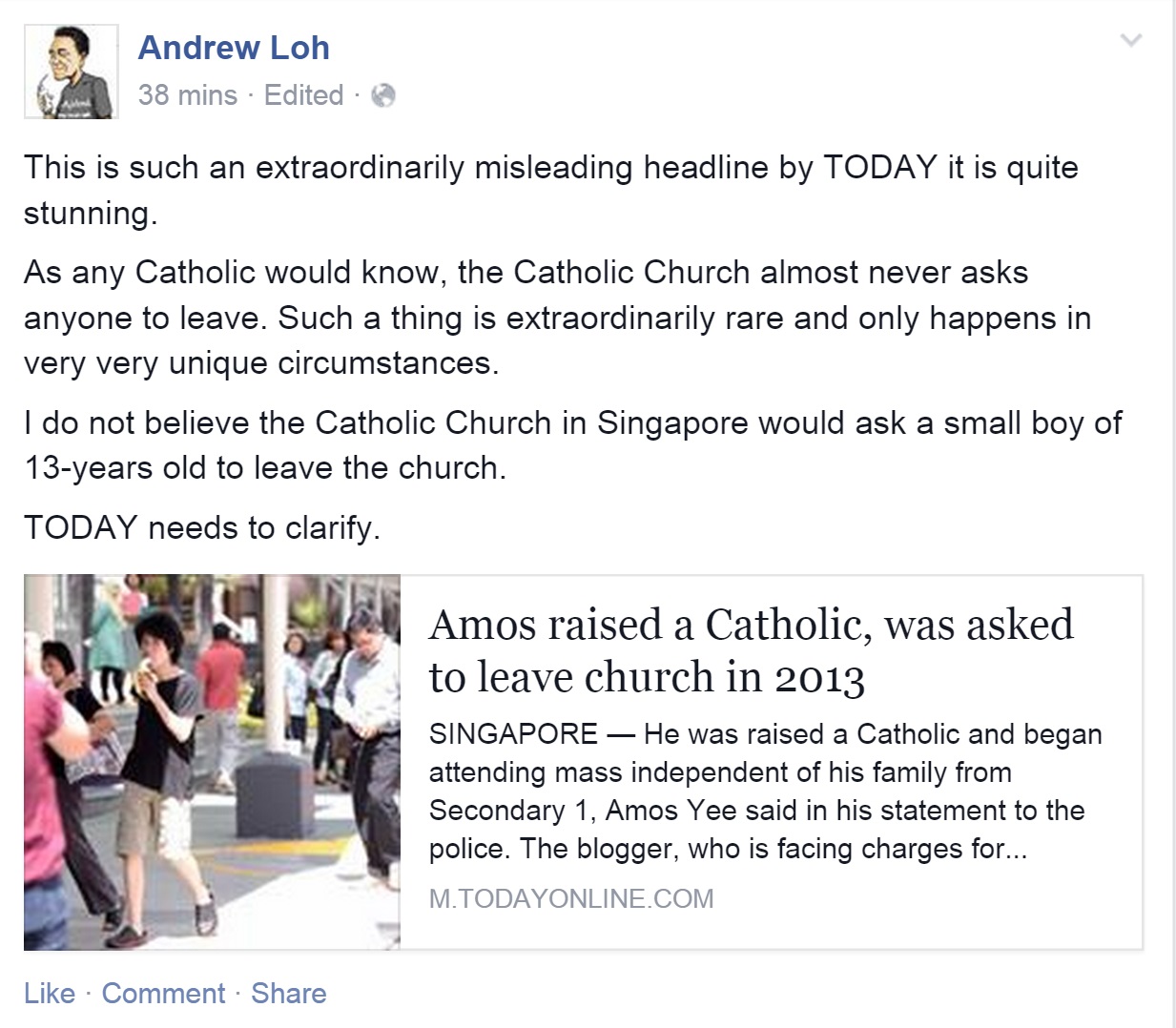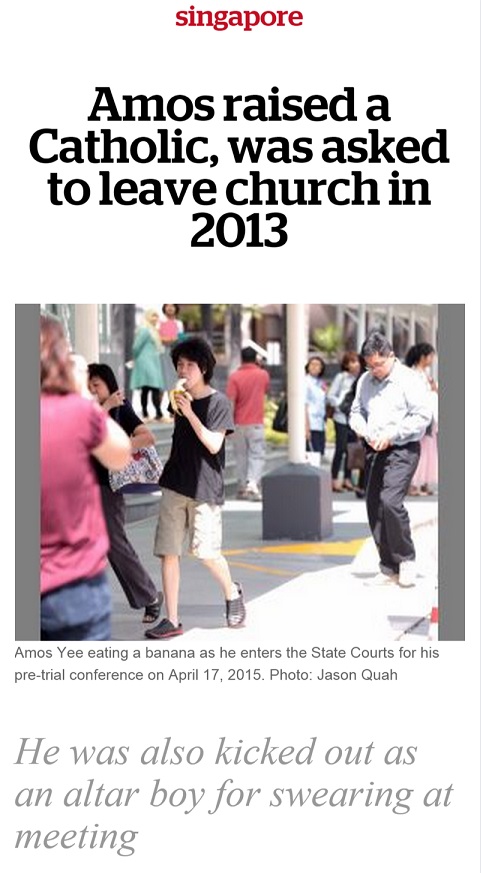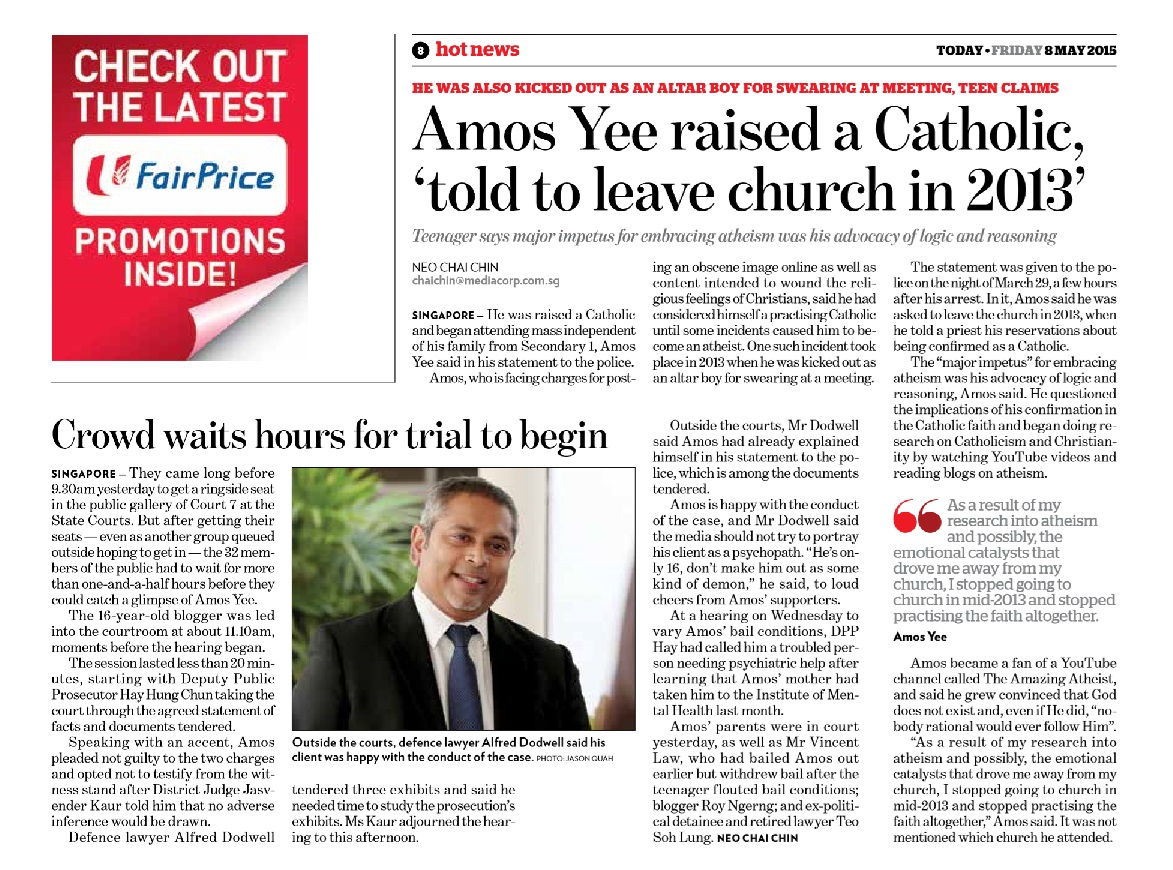Teenager Amos Yee pleaded not guilty to the two charges of insulting Christianity and posting an obscene image at the first day of his trial yesterday.
Depending on which newspaper you read, you will draw different conclusions on whether the Catholic church kicked the 16-year old out or whether Yee left the church voluntarily.
The Straits Times
 Screenshot of Straits Times article
Screenshot of Straits Times article
Straits Times: "In the court documents, he revealed how he was raised as a Catholic but he asked to leave the Church in 2013 when he converted to atheism".
What that means: Amos Yee informed the authorities and left the Catholic church voluntarily. Note the capital C in church.
Editor's note: A reader informed us that a Catholic cannot "leave the church voluntarily". He can only stop practising the faith.
TODAY online headline
What that means: Amos Yee was asked to leave the church premises or he was asked to leave the religion.
TODAY newspaper
TODAY: "The statement was given to the police on the night of March 29, a few hours after his arrest. In it, Amos said he was asked to leave the church in 2013, when he told a priest his reservations about being confirmed as a Catholic."
What that means: Amos Yee said he was asked to leave the religion or the church premises.
As The Online Citizen editor Andrew Loh pointed out, it is an extreme rare circumstance for the Catholic church to ban a Catholic.
The Catholic church only "excommunicates" Catholics for reasons such as priests entering politics, and priests participating in acts of advocating for women priests. You can actually count the number of people being banned from the Catholic church.
 Source: Andrew Loh Facebook
Source: Andrew Loh Facebook
The late Pope John Paul II once said that ethical relativism, where there are no objective moral truths, poses a threat for present-day democracies.
The remarks fits in well with this example of reporting in Singapore today - the truth is relative, for it depends on which local mainstream media you read.
If you like what you read, follow us on Facebook, Instagram, Twitter and Telegram to get the latest updates.


